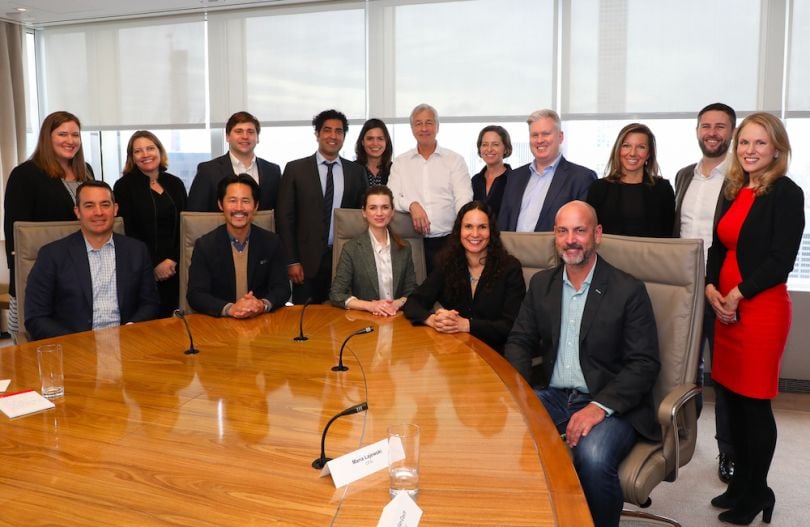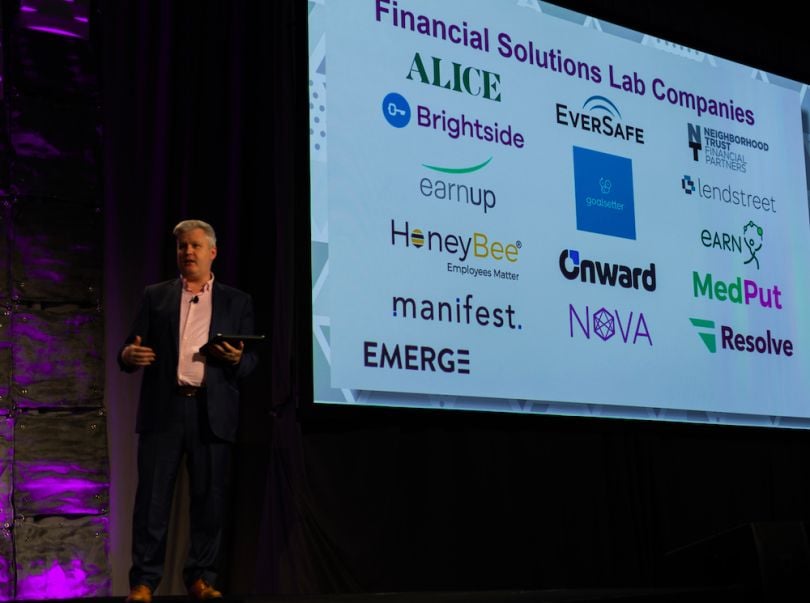By many metrics, the economy in the United States is in fantastic shape. Unemployment has been hovering around 3.5 percent since last September — the first time it’s been that low since 1969. The stock market is more valuable now than at any other period in the country’s history. And corporate profits are higher than they’ve ever been.
But a startlingly high number of Americans do not have the kind of financial security one might expect from citizens of such an advanced economy. In 2018 the Financial Health Network, a consumer finance research organization, found that just 28 percent of Americans 18 years or older were considered “financially healthy.” That designation was reserved for people who can manage their debts, possess sufficient savings to cover unexpected expenses and plan for retirement. The rest — a full 180 million people — were grouped as either “coping” or “vulnerable.” In a separate study, the JPMorgan Chase Institute found that many Americans delay healthcare treatments until they have enough cash on hand, often waiting until an upcoming tax season.
Financial Instability Findings
- 47 percent of respondents spent more than they earned
- 93 percent couldn’t pay all their bills on time in the last 12 months
- 42 percent said they had no retirement savings at all
- 30 percent had more debt than they could manage
- 40 percent of households don’t plan ahead financially
“The majority of households are living in this increasingly fragile state,” said Colleen Briggs, the Head of Community Innovation at JPMorgan Chase. “And that means they’re one financial emergency away from going into bankruptcy, or defaulting on debt, or having to go on food stamps.”

Briggs said that kind of instability means people are less likely to start a business, go back to school or buy a home. Outcomes like those have detrimental effects on the wider economy.
“We know these things are so important for the resilience and stability of our economy,” she said. “If we care about inclusive growth — which we know is the cornerstone of a strong economy — then we have to start with ensuring that households have strong financial lives and security.”
Financial Instability Studies
Advancements in digital technology have created opportunities to build consumer-friendly financial management tools, and fintech entrepreneurs are scrambling to answer the call. From financial education platforms and savings apps to insurance policy comparison tools, solutions of every stripe now vie for the attention of consumers in crowded apps stores.
To channel that entrepreneurial energy, JPMorgan Chase has partnered with the Financial Health Network and created the Financial Solutions Lab, a $50 million initiative designed to identify, test and scale tech-driven solutions to financial insecurity.
“When we started this back in 2014, there just weren’t enough financial institutions that were incentivized to really focus on consumer protection,” said Garry Reeder, who serves as the Financial Health Network’s VP of Innovation and Policy in Washington, DC. “JPMorgan Chase has been a great partner in providing funding and expertise, both internally and across all their partners. It supplements our broader network and all the work we’ve done over 15 years to create an ecosystem of people who are focused on financial health.”

Building a Financial Health Startup
Through the Financial Solutions Lab, JPMorgan Chase and the Financial Health Network aim to help financial health-focused startups overcome the many challenges entrepreneurs face. Assistance includes the usual accelerator staples — access to networks, expert consultations, product testing — along with advice on the particular demands of this corner of the fintech industry.
Briggs, who represents JPMorgan Chase in running the initiative, said the full scope of the program is designed to ensure that products in development ultimately serve the financial health of the end user.
“You need to think about how to align your revenue stream with the best outcome for your consumer,” she said. “We’re seeing some creative ideas and great innovation from companies there.”
One example from last year’s cohort is New York City-based MedPut, which provides a platform for interest-free financing and medical bill negotiation. Then, there’s San Francisco-based Brightside, which offers a suite of financial health solutions and access to a human assistant. And HoneyBee — also from the Bay Area — grants credit-free access to emergency funds as an alternative to drawing on 401(k) savings or payday loans. All three startups sell their services to companies who in turn offer them as benefits to employees.
In interviews with Built In, founders at the three companies credited the Financial Solutions Lab for helping fuel growth. HoneyBee Founder and CEO Ennie Lim said the program showed her how hard paid payroll integration is for employers — and how offering an alternative could benefit her business. MedPut Co-founder Harsha Puvvada said feedback from large, prospective clients was a welcome benefit.
“The ability to create product partnerships and access experts in the field helped guide us toward good decisions,” said Brightside Co-founder and President Callum King.
“Knowing and navigating the regulatory environment is extremely important in this space.”
For Reeder, knowledge of the law and familiarity with financial regulations are key for financial health startups. And he would know: Before his time at the Financial Health Network, Reeder worked on the U.S. Treasury’s 2010 auto industry bailout and helped Senator Elizabeth Warren create the Consumer Financial Protection Bureau.
“Other programs focus on the tech stack, or on raising capital from investors, or testing a product,” he said. “We do provide those services, but knowing and navigating the regulatory environment is extremely important in this space, and we aim to address that.”

An Open Field
Briggs said selling consumer financial health tools to employers — as MedPut, Brightside and HoneyBee do — is a trend she’s observed across the industry.
“We’re seeing more absenteeism related to financial insecurity,” she said, “and employers are now seeing the value of offering these solutions. This creates a new kind of delivery channel for these startups.”
And while some areas of financial health have received a lot of attention from fintech entrepreneurs — Reeder pointed to student loan debt as a prime example — other pain points are crying out for new solutions. These areas of need include the dearth of benefits available to gig economy workers and the bureaucracy many people experience in trying to access their own money, Reeder said.
“You can’t just be a savings product — you’ve got to help people save.”
Regardless of the issue entrepreneurs choose to address, both Briggs and Reeder agreed that access to financial tools alone doesn’t cut it.
“Access is great,” Reeder said. “Access is important. But access to a product that doesn’t lead to better outcomes for consumers? I’m not sure we can count that as a success.”
To create real change, Briggs said, companies need to arm consumers with information and advice to get real value out of new financial tools and services.
“We used to see these broad financial management tools that would tell you the state of your finances, and that was about it,” she said. “But now we’re seeing companies get more specific. They’re offering a way to put that information into action.”
“You can’t just be a savings product — you’ve got to help people save.”




